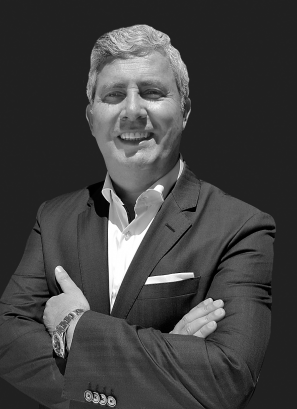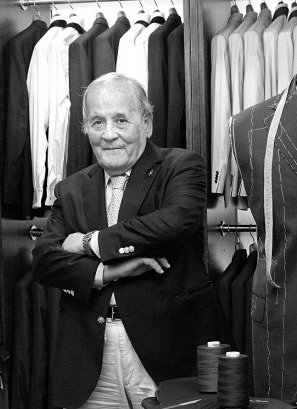
Pedro Pinto

Pedro António Costa
Paulo Amorim
CEO of Christie’s Port Wine
«There is no good wine without good grapes», says Paulo Amorim. Nor are there good grapes, without people who dedicate themselves entirely to them, we add. The businessman, who has recently been commended by the French Government as a Chevalier dans l'Ordre du Mérite Agricole, is one such person. He has been in the industry for 37 years. ‘Passionate’ about the activity that he considers to be ‘sexy’, he has made a point of going from top to bottom throughout every area to do with wine: production, sales, export, import, distribution, in addition to institutional matters. Wine is his life.

How did you get into the world of wine?
After finishing my studies, I lived with two great friends in an apartment in Oporto and we enjoyed a very lively, party-filled nightlife. That’s why I always got up late and missed the job interviews that one of them got for me (he was worried about my future, because, the way things were going, he thought I would never work in my life). For some reason I ended up going to the interview at a port wine company and I got really excited about the environment; they suggested I would start travelling around the world the following week and offered a salary that I wasn’t expecting. Curiously, next to the company was a building formerly owned by my maternal great-grandfather, João de Pinho e Costa. He had been one of the owners of Valente & Costa, one of the most important port wine companies. That is to say, I ended up in the world of wine partly by chance and partly because there was an old fascination for this industry deep within me; it was in my genes.
«It was the first time in the country that competitors from the same industry sector worked together»
What keeps you working in this industry?
J. F. Kennedy’s maxim: «Ask not what your country can do for you, but what you can do for your country». In this sense, I founded a group called G7 – Grupo dos Sete. There is the G7, the group of the richest countries in the world (now G8), and we were the seven largest wine companies in Portugal. It was the first time in the country that competitors from the same industry sector worked together. It was an example not only for the wine sector, but also for other sectors where, fortunately, today there are many groups working as a team. I also founded, along with other colleagues, Viniportugal, which promotes Portuguese wines around the world, because until then Portugal had never had a global internationalisation marketing plan for the sector.
Being a great connoisseur of the universe of grapes, can you help us understand where Portugal stands in comparison to the rest of the world?
Portuguese wines are today at the forefront of many international experts and buyers’ minds; we now need to take the next step and translate that well-meant ‘goodwill’ into more sales, greater added value and gaining a firm hold in distribution, an extremely difficult and demanding task. Portuguese producers have to be able to put aside what separates them, concentrating on what unites them and the spirit of mutual aid in this endeavour to conquer international distribution is fundamental. I see this as a motorway. That is to say, we are working in a positive way, but there are still countries that are working better than us.






